Table of contents
Can essential oil therapy reduce anxiety?
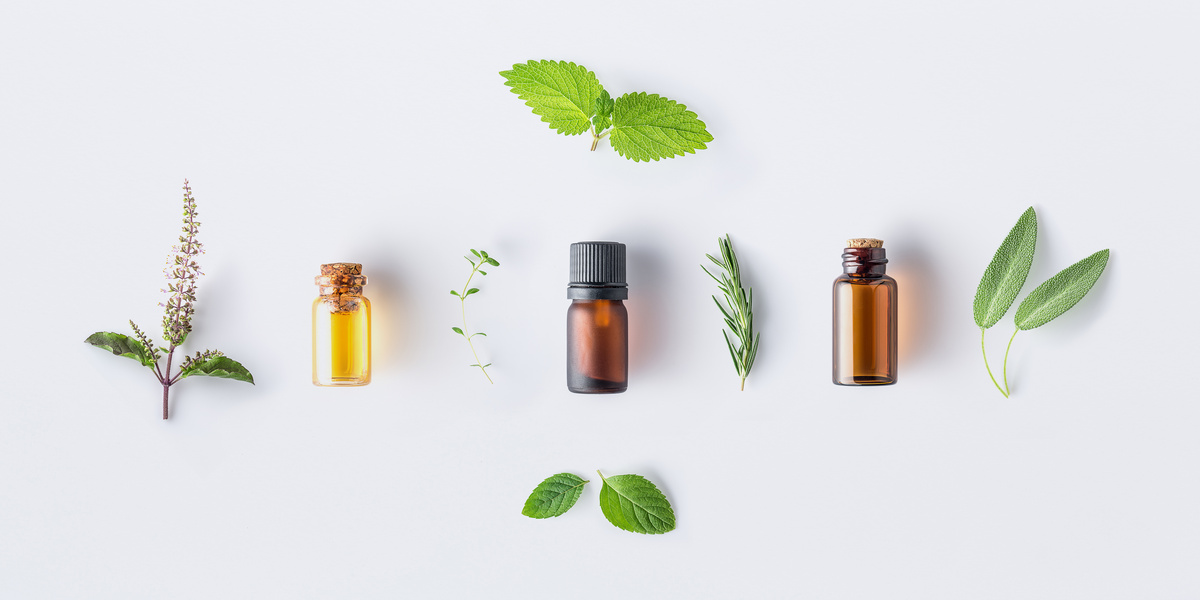
Known and used for millennia, essential oils have diverse medicinal properties. Through the release of particles present in aromatic plants, essential oils effectively combat not only the effects of anxiety, but also its causes.
In current times, we have a scenario of exponential increase in the number of people suffering from anxiety, being considered the great evil of the century. In many cases anxiety becomes a pathology, requiring the use of controlled medication.
The use of essential oil therapy is an alternative approach to combat anxiety with the great advantage of being totally natural and without any side effects.
In this article you will learn the principles of aromatherapy and the basics about essential oils. In addition, we will see more details about 17 different types of specific oils to combat anxiety, as well as the different ways to use them. We will also address the most common questions about this therapy and whether it really works against anxiety.
Principles of aromatherapy

To understand how this technique works, which is considered an alternative medicine, we must keep in mind that it assumes that plants have medicinal power.
It is irrefutable that scents, whether they come from essential oils or not, cause physical and mental well-being to human beings. We are sensory beings and smell is closely linked to emotions and memories.
See below what aromatherapy is and what benefits it brings. We will also detail the relationship of aromatherapy with anxiety.
What is aromatherapy?
It is the technique of using specific aromas in treatments against various types of ailments that inflict the human being. Aromatherapy should be conducted by a professional who understands about the different types of essential oils, because, if used incorrectly, can cause allergies and skin irritations.
It is speculated that aromatherapy began with the burning of wood and leaves of aromatic plants, and its oldest record goes back to the Sumerian region (now Iraq) more than 3 thousand years ago.
It is believed that its origin is much older than its first records, being used by tribes in prehistoric times.
What are the benefits of aromatherapy?
The benefits of aromatherapy are directly proportional to the amount of existing plants and aromatic herbs, in other words, they are many. Its use helps in the relief of pain, stress reduction and relief of muscle tension, for example.
As for the benefits that aromatherapy brings to the brain, essential oils, through smell, are able to stimulate the limbic system. In it we find important structures such as the hypothalamus and the hippocampus, which are related to our emotions and social behaviors.
In addition, aromatherapy is an important means of mood improvement and decrease or even eradication of anxiety. Studies also prove the effectiveness of some essential oils in fighting viruses, bacteria and fungi.
Aromatherapy and anxiety
Anxiety itself is attributed to a number of factors that together lead to this evil. Aromatherapy comes to meet the softening of these factors thus resulting in the decrease of anxiety.
In addition, the natural chemical properties of certain plants act as regulators of hormones linked to stress and nervousness, thus fighting the root of various anxiety conditions.
Whether used in its most varied forms, aromatherapy provides physical and mental relaxation, reducing tension and negative feelings that lead to anxiety and without the side effects that some controlled-use medications have.
Basics of essential oils
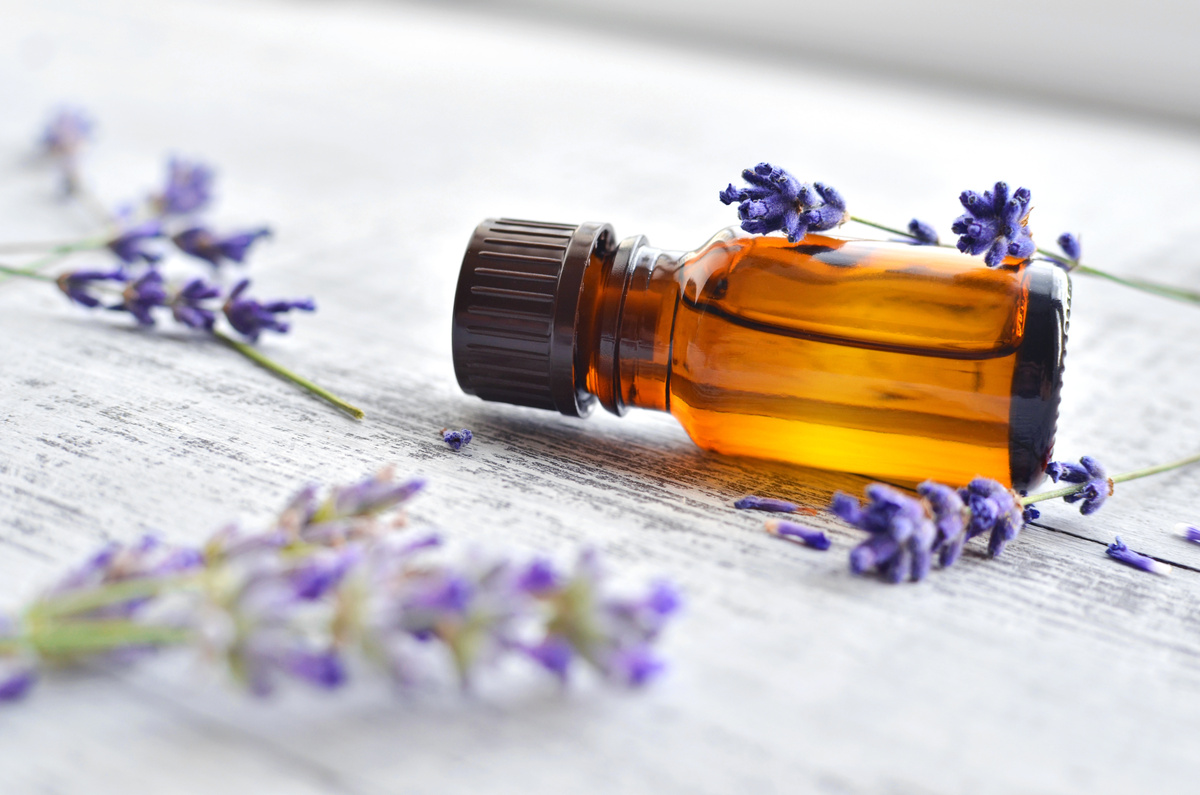
For the correct use of essential oils, thus taking advantage of all their benefits, a correct understanding of them is necessary. We will see below what essential oils really are and how to use them.
Another important aspect that we will see in this article is the importance regarding the quality of these oils and where to buy them.
What are essential oils?
Found in flowers, bark, stems, roots, fruits and other parts of a plant, essential oils are chemical and aromatic compositions found naturally in plants.
They possess strong and pleasant aromas being responsible for giving distinct characteristics to each type of plant. Besides being used in aromatherapy they also have their use employed in the manufacture of foods and skin treatments. In the same way they play an important role in the vegetable kingdom regarding pollination.
The way in which an essential oil is extracted is very important, as well as the time of the year and the climate of the place where a certain species is cultivated. These factors imply in the quality and consequently in the effectiveness of each essential oil.
How to use essential oils?
The first step for the use of essential oils is to understand the reason of use for choosing one or more types of oils. Each plant has in its essential oil distinct properties aimed for certain purposes, and the choice and use should be made with attention and with the help of a professional.
In aromatherapy, the most common means of using essential oils is through direct inhalation or in the form of diffusers and room fragrances.
Besides the application in aromatherapy, they can also be used in massages, usually diluted in another neutral oil and of good quality and in compresses, or even during baths. It is also performed the direct application, but with caution and correct dosage, because the oils are usually quite strong.
Another form of use is the inclusion of oils in soaps and other types of beauty products, or even the ingestion of these oils. We emphasize that any form of use should be under the guidance of a professional who understands deeply about the oils, taking into consideration each specific case, as for allergies, for example.
Where to buy essential oils?
The quality implies a lot about the effectiveness of the essential oils. To buy good quality oils and with correct extraction processes, seek the indication of a professional in the aromatherapy area.
There are sites where you can buy extreme quality oils from abroad. Remembering that the prices of these products may not be attractive, because the extraction processes are complex and often time consuming. But you will probably use in small quantities, increasing the durability of the oils, which compensates the price.
17 essential oils for anxiety
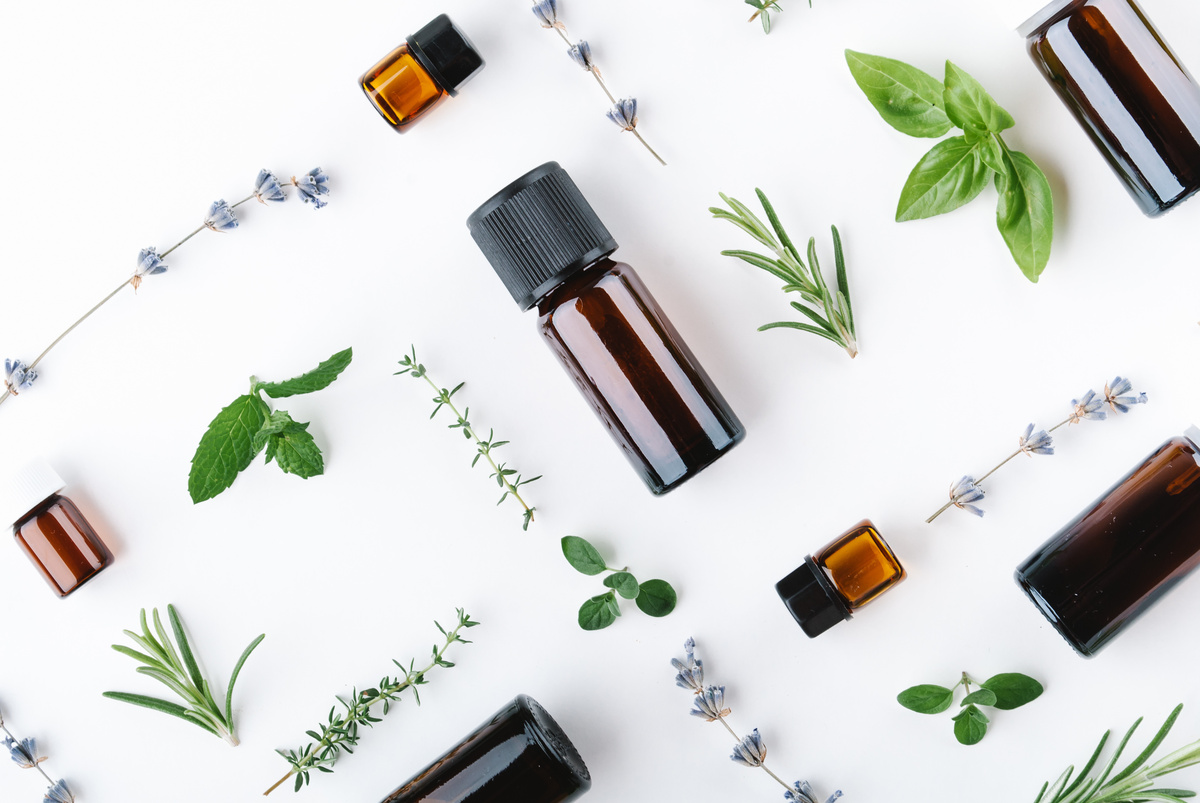
Among the thousands of different types of essential oils, there are those that stand out specifically for the treatment of anxiety, from its causes to its effects.
We've listed 17 essential oils for anxiety, from the most popular, such as Lavender, Ylang ylang, Patchouli and Chamomile essential oils, to the lesser-known, such as Vetiver essential oil. See how each one has different chemical properties that act in different ways to combat anxiety.
Lavender
Lavender essential oil is widely used both in aromatherapy and in the manufacture of many different types of cosmetic and personal care products.
In its composition there are chemical agents such as limonene, acetate, myrcene, linalool and linalyl, effective for decreasing insomnia and anxiety, having calming and sedative properties.
Vetiver
The vetiver is a plant from the same family as lemon grass and lemon balm. Its essential oil is extracted from its root and has an earthy aroma, being used in the composition of masculine perfumes.
The essential oil of vetiver is indicated and used as an alleviator of mental fatigue, one of the primary causes of anxiety. Its properties assist in concentration and improving mental focus.
Bergamot or Tangerine
The essential oil of bergamot or tangerine is known for its energizing and invigorating properties, very important in combating depression. It acts as a stimulant of the endocrine system (related to metabolism), generating improvement in hormone production.
This fact is directly linked to fighting anxiety, because hormonal imbalances are frequent causes of symptoms of this disorder.
Ylang Ylang
With a sweet and striking aroma, the essential oil is widely used in the perfume industry, being one of the main components of the famous perfume Channel No. 5.
This essential oil of this plant of Asian origin acts directly on improving mood, an important aspect when it comes to anxiety.
Ylang Ylang essential oil also acts in reducing blood pressure, regulating heart rate and stimulates production of oils on the scalp and skin.
Roman Chamomile
It has an aroma very similar to apple and is widely used for bleaching hair and in perfumes and shampoos.
Chamomile Roman essential oil has strong sedative and calming effects, helping to ease insomnia, nervousness and anxiety. It also has anti-inflammatory and analgesic properties, and is also used on wounds and in surgical recovery processes.
Oliban
Olibanum, a plant of the genus Boswellia, was originally used as incense and its essential oil is extracted from the resin of the tree.
The essential oil of Olibanum also activates limbic areas of the brain acting against pain, depression and anxiety. It is often used to quiet the mind during meditation practices, having a warm and comforting aroma.
Rosa
As for fighting anxiety, rose essential oil has the ability to assist in improving mood, which in itself is already a positive factor for overall well-being.
This essential oil has a relaxing power and is even effective in reducing anxiety in pregnant women during labor.
Lavender
Lavender is a type of lavender that differs by its more pronounced camphor-like smell. Related to fighting anxiety, the essential oil has demonstrated proven effectiveness in reducing the stress-related hormone, cortisol.
It is effective in alleviating panic syndromes and irritation, thus being an important ally in the fight against anxiety. In addition, it is a great helper against insomnia, and is even used to scent pillows and bedding.
Nardo
In aromatherapy, the essential oil of Nard is used against mood swings and as an antidepressant. It causes tranquility, being attributed to deep states of peace of mind.
Because it is extracted in remote regions of the Himalayan mountain range, Nard essential oil has a high market value.
Patchouli
Its aroma is very characteristic and easily recognized, having a strong woody tone. Patchouli essential oil works as a mood regulator and antidepressant, stimulating the production of serotonin and dopamine, hormones related to pleasure. In this way, it is widely used by aromatherapy to combat stress, besides also being a famous aphrodisiac.
Jasmine
To combat anxiety, Jasmine essential oil acts as a potent emotional balancer, providing calming and antidepressant action. It can also be used as a stimulant, as it is related to the increase of optimism and positive feelings in general.
It also has aphrodisiac properties that also correlate with combating the effects of anxiety.
Holy basil
Holy Basil essential oil acts as a regulator of the adrenal glands, small glands located above the kidneys and which are directly linked to the production of stress-related hormones such as adrenaline and cortisol.
Thus, the use of Holy Basil decreases stress, nervousness and irritation, promoting greater mental focus and general well being. The use of this plant in aromatherapy also causes an increase in the power of concentration and cerebral focus.
Sweet basil
Sweet basil is very common in Brazil and widely used as a condiment in the kitchen of the state of Santa Catarina. It is considered a powerful anti-inflammatory, is also used to combat spasms and against intestinal and menstrual cramps.
As for fighting anxiety, sweet basil essential oil acts as a toner of the nervous system, increasing focus and clarity of thinking.
Clary sage
It is known since ancient times, being used medicinally by the Greeks and Egyptians, who had in this plant a remedy for fertility.
The essential oil of Salvia clarysilica has low toxicity compared to common salvia, thus being widely used in aromatherapy. It is considered to have an antidepressant effect and is very suitable for improving sleep, as it relaxes the body and mind.
Geranium
Geranium, a plant native to South Africa, has antiseptic, bactericidal, astringent and antioxidant properties.
It is used in the form of essential oil in aromatherapy to combat anxiety has calming and depression-reducing effect. In addition, Geranium essential oil acts as a stress reducer, a major root of anxiety.
Lemongrass
Citronella herb has a calming effect that helps in improving mood, reducing stress and increasing physical and mental well-being.
The essential oil of this plant has antibacterial action effective against pneumonia and skin infections. It also acts in controlling high blood pressure, a common consequence of stress and anxiety.
Sweet orange
As for its use in combating anxiety and its symptoms, orange essential oil acts as a regulator of stress-related hormones, in addition to being a brain revitalizer. Another interesting aspect is its effectiveness in patients with post-traumatic stress disorder.
Different ways to use essential oils for anxiety

Due to the great number of benefits of essential oils in general, various forms of use are found. They are related to the purpose of the use of these oils and to the ailments of the body and mind that are intended to cure or alleviate, or by the ease that certain form of use provides.
Follow how essential oils are used in the bath and with the use of diffusers or room fragrances. See also how they are used in personal diffusers, in bed linen and in the form of body cream.
Bath
The use of essential oils during the bath is a common practice and allows, besides the inhalation, the absorption of them by the skin. In this way, the cosmetic benefits and other particularities that the oils have in relation to the epidermis are also taken advantage of.
If the bath is of immersion in bathtubs or ofurôs, it is recommended to use from 15 to 20 drops of the oil and also a spoon of some carrier oil (vegetal oil used to dilute the essential oil and avoid skin irritation) besides powder milk or honey, so that it mixes in a homogeneous way in the water.
If the bath is in the shower, it is recommended to use a sponge with a few drops of oil and then rub it all over the body to facilitate the absorption into the bloodstream. After this process, rinse with water at a lower temperature.
Diffuser, room freshener
Simple to use, diffusers are the most popular way of using essential oils in aromatherapy. If using a candle, mix water with 10 drops of essential oil in the top of the diffuser.
The heating of the water and oil mixture by the candle flame gradually releases the aroma throughout the environment, but is not recommended for use during sleep.
There are also electric diffusers that are even easier to use, because they are less risky (no fire) and already determine the amount of oil drops to be used.
Personal diffuser
It is another simple and quick way to use aromatherapy. Usually, personal diffusers are found in the form of pendants, bracelets or bracelets that have cotton or felt inside.
You then apply the essential oil inside this compartment with felt or cotton wool, and the aroma is released slowly for much of the day.
In the bedding
Using essential oils in bedding is an excellent way to use oils that aid sleep, for example.
You can dilute water and essential oil in a spray bottle, and then apply to the sheet and pillowcase a few minutes before bedtime. You can also apply the mixture of water and essential oil when drying clothes in dryers.
As the essential oil is strong and striking, the aroma can remain for days in the bed linen. Another way to use it is to store the bed linen with sachets or cotton with drops of the essential oil.
Body cream
If the goal is to use the oils on the skin, it is worth noting that they are strong, and therefore can cause intense skin irritations. It is recommended to mix with some other type of neutral cream or carrier oil, and thus spread all over the skin, massaging it for better absorption.
They can be used as creams for the whole body and also as facial masks for cosmetic treatments. It is important to know for sure which type of essential oil is most suitable for each area of the body before use.
Frequently asked questions about the use of essential oils for anxiety
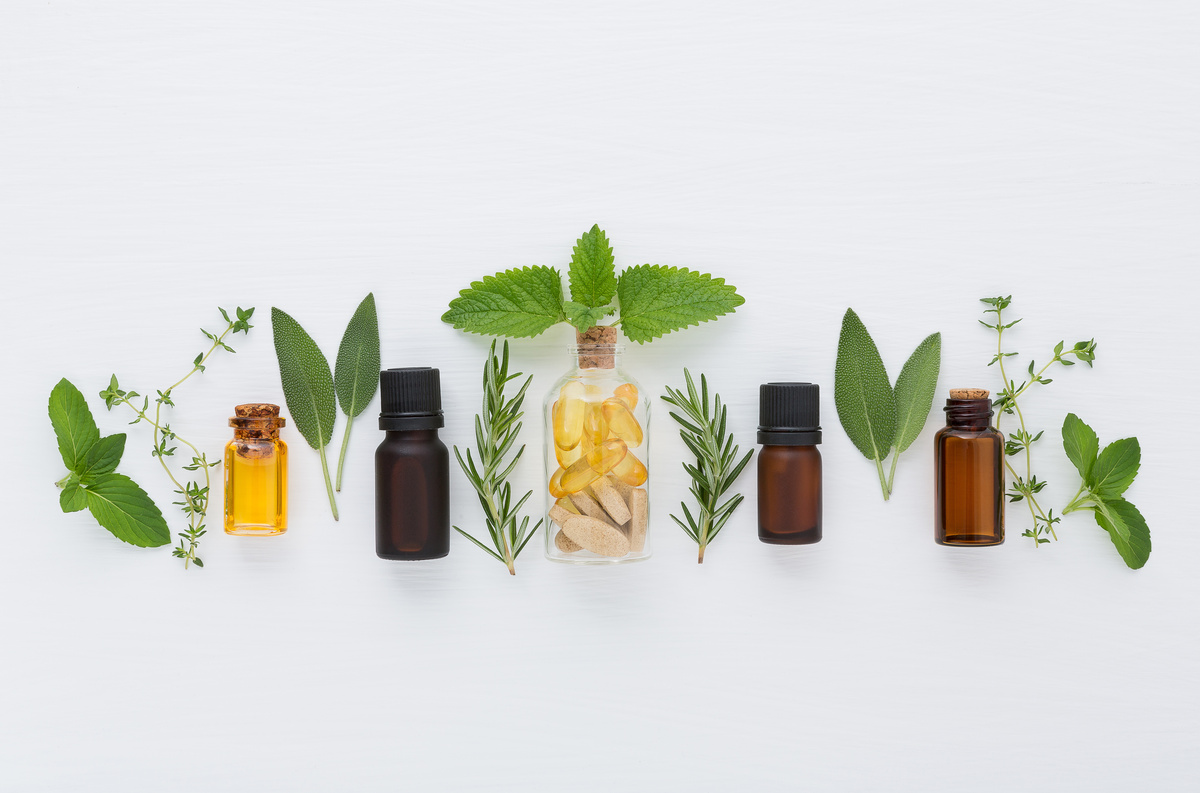
Due to the wide variety of types of essential oils and their specific uses, it is common for questions to arise. In relation to fighting anxiety, one should be cautious and never interrupt medical treatments if you are currently undergoing any.
Below you can see if anyone can use aromatherapy to reduce anxiety and how often you should use essential oils.
Can anyone make use of aromatherapy to reduce anxiety?
Whatever the form of use of aromatherapy, it should, first of all, consult a professional in the area. The aromatherapist will indicate which type of essential oil is the most indicated, as well as the form that will give its use.
It is very important to note that one should be very careful about allergies, as these oils are strong plant concentrates that, as beneficial as they may be, can trigger strong allergic reactions.
Another aspect that should be taken into account is if the person takes any anxiolytic medication and if it will have any interaction with the use of any essential oil.
How often should I use essential oils for anxiety?
The frequency indicated for the use of essential oils for anxiety can vary according to the symptoms of anxiety that the person has.
As much as they are of natural origin, these oils are chemical components found in plants, and, therefore, it is necessary to be cautious about the form and frequency of use.
For treatments of anxiety problems that hinder sleep, for example, daily uses are indicated in the form of diffusers or in bed linen.
If you go through problems related to anxiety, the most indicated is to seek a professional of aromatherapy that will indicate not only the frequency of use of essential oils, but also which essences are the most indicated beyond the form of use.
Do essential oils for anxiety really work?
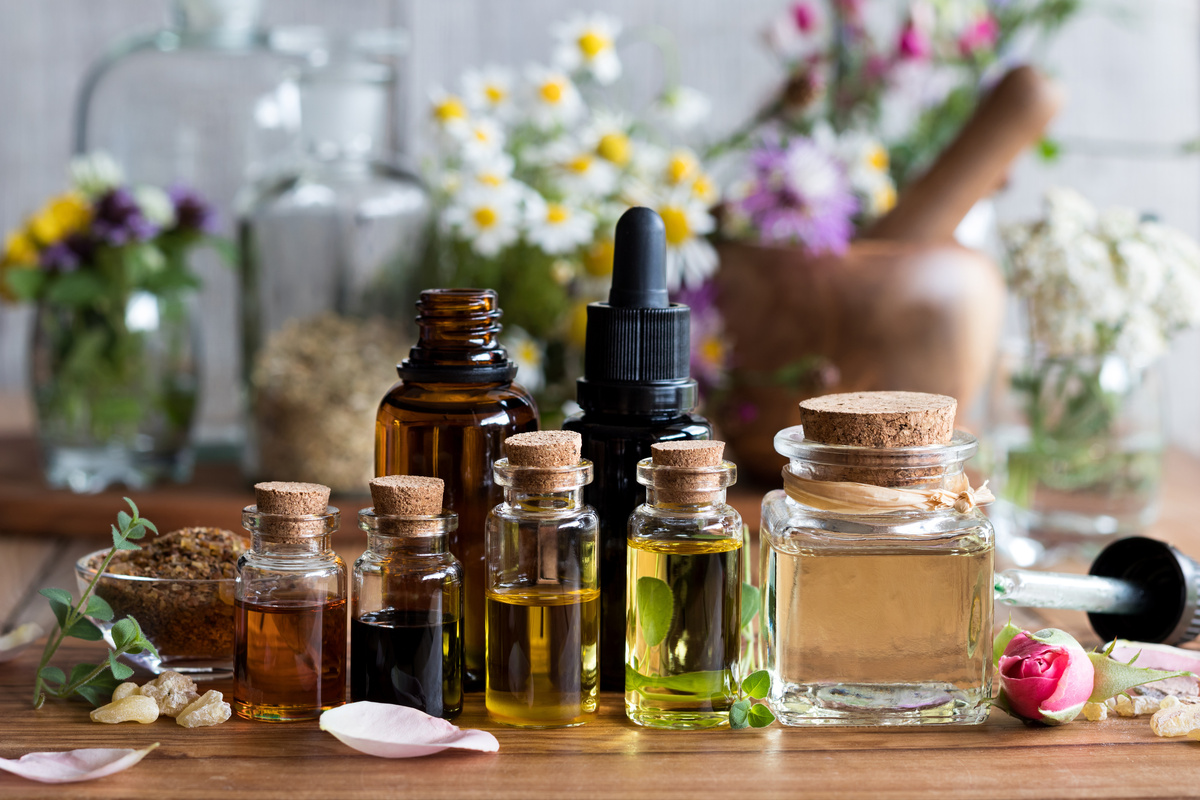
We found in aromatherapy a natural and quite safe way to take advantage of the medicinal properties that plants possess.
Whatever the form of use, essential oils have been used in ancient practices of various cultures and their benefits are even recognized by modern traditional science.
In the treatment of anxiety, it shows to be very effective, because the particles found in these essential oils in fact activate brain regions directly linked to the sensations of pleasure and happiness, besides being a way to avoid or reduce the use of controlled anxiolytics.
Glands responsible for the production of hormones related to stress are positively influenced by the substances of these vegetables, and the simple fact of feeling a natural and pleasant aroma is already a positive factor to promote physical and mental well-being.
The use of essential oils should be done with caution especially about possible allergic reactions, but in fact really work against anxiety, being important allies in the fight of this great evil that affects humanity.

